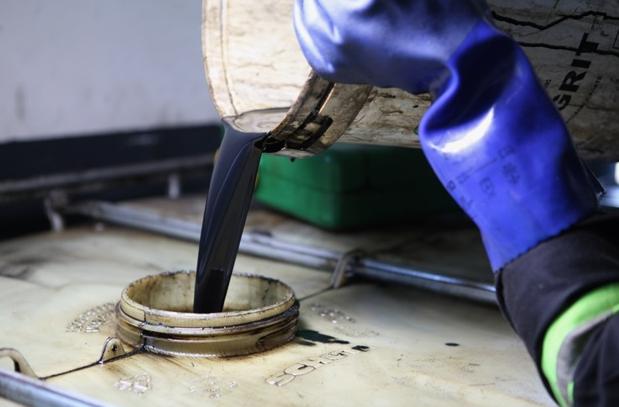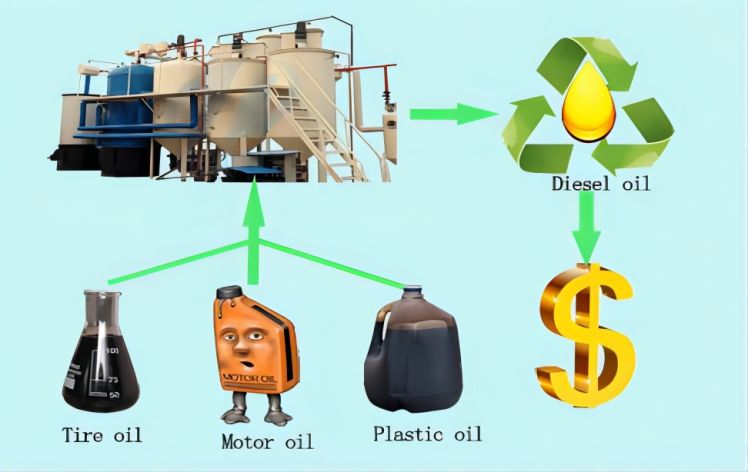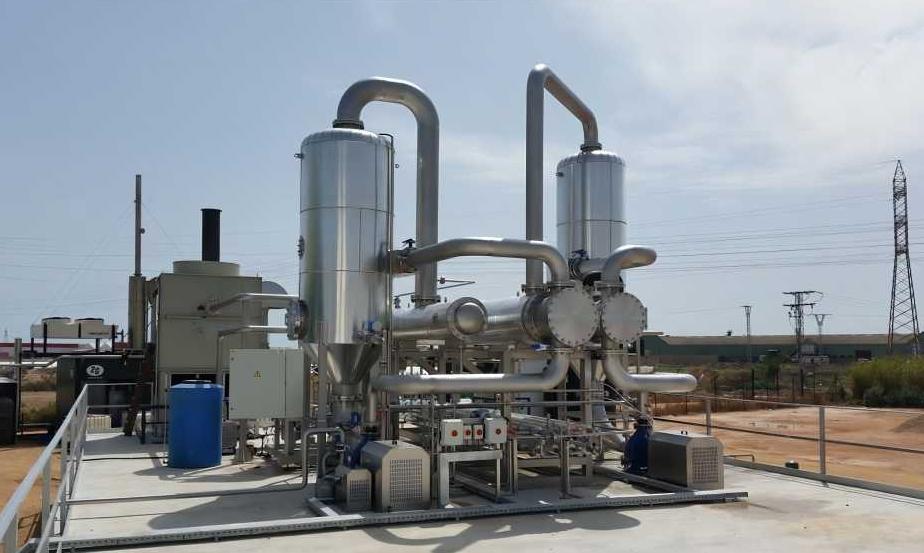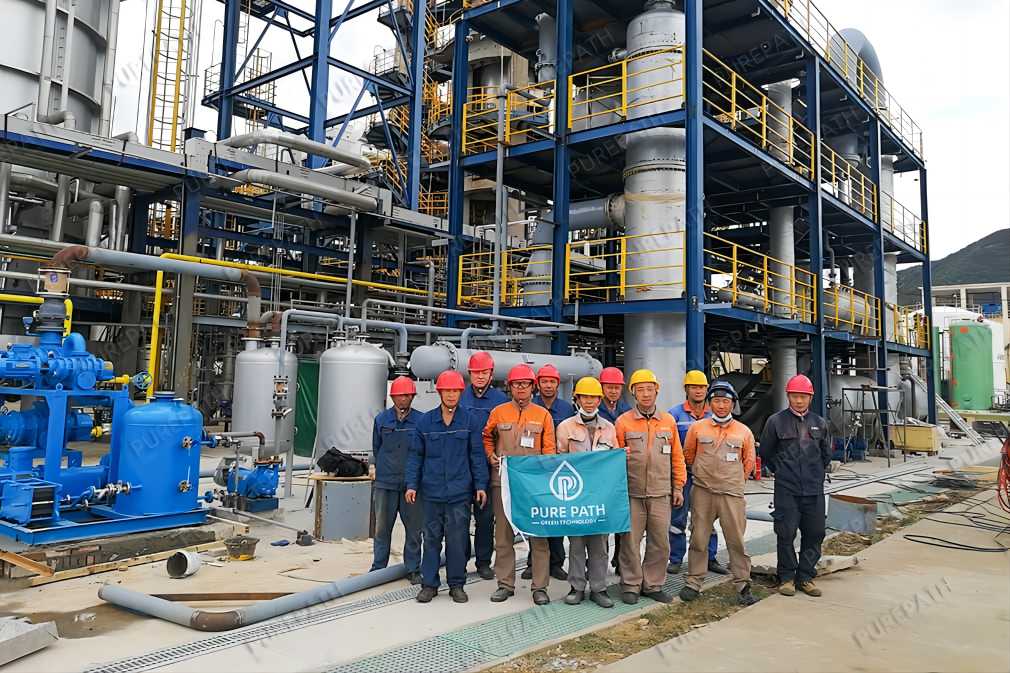Best Practices for Responsible Waste Oil Management
Effective waste oil management is crucial for maintaining environmental sustainability and ensuring the safety of both people and ecosystems. As industries and households generate waste oil, proper handling, storage, and recycling methods are essential to mitigate potential harm. This article explores the importance of responsible waste oil management, outlines best practices, and highlights the benefits of proper waste oil disposal. Additionally, we will discuss the role of PurePath Waste Oil Recycling Plant in promoting eco-friendly waste oil recycling solutions.
Why Proper Waste Oil Management Matters

Used oil might seem like a harmless leftover, but it’s actually a hazardous material with the potential to wreak havoc on our environment and health. Let’s delve deeper into the dangers of improper waste oil management:
- Environmental Contamination: A single quart of used oil can contaminate up to 250,000 gallons of freshwater. This is because oil doesn’t readily dissolve in water and forms a thin film on the surface. This film suffocates aquatic life and disrupts ecosystems. Leaked oil can also seep into the ground, contaminating soil and groundwater. Contaminated water sources are rendered unfit for drinking, recreation, and irrigation.
- Health Risks: Used oil contains harmful toxins and heavy metals that can leach into the soil and water. These toxins can enter the food chain, posing a risk to wildlife and ultimately impacting human health. Improper burning of used oil releases harmful pollutants into the air, causing respiratory problems and other health issues.
- Fire Hazards: Used oil is flammable and improper storage can lead to fires and explosions. These accidents not only damage property but can also release harmful toxins into the environment.
- Beyond the immediate dangers, improper waste oil management also represents a missed opportunity:
- Resource Depletion: Used oil contains valuable base stocks that can be recycled and re-refined into new lubricants. Improper disposal means we lose this valuable resource and rely more heavily on virgin oil extraction, a process with its own environmental impact.
By taking waste oil management seriously, we can protect our environment, safeguard our health, conserve resources, and contribute to a more sustainable future.
Best Practices for Waste Oil Management

Used oil requires careful handling to avoid environmental and health risks. Here’s a breakdown of best practices to ensure safe and responsible waste oil management:
- Storage:
- Leak-proof Containers: Invest in sturdy, corrosion-resistant containers specifically designed for used oil. These containers typically come in various sizes, so choose one that suits the volume you typically generate.
- Clear Labeling: Ensure all containers are clearly labeled with “Used Oil” and the appropriate hazard symbols. This helps with identification and prevents accidental misuse.
- Designated Storage Area: Select a covered, well-ventilated area for storing your used oil containers. Ideally, this area should be away from direct sunlight, heat sources, and high traffic areas. Consider a concrete pad or bunded area to contain any potential spills or leaks.
2. Collection:
- Licensed Collectors: Partner with a licensed waste oil collector in your area. These companies specialize in the safe and proper transportation and processing of used oil. They often offer convenient collection services, eliminating the need for you to transport the oil yourself.
- Designated Collection Centers: Alternatively, you can take your used oil to a designated collection center. These centers are typically operated by municipalities or recycling facilities. Research local regulations and collection center locations to ensure you’re disposing of your oil responsibly.
3. Prohibited Disposal Methods:
- Drains: Never dispose of used oil down drains. Oil can clog drains and contaminate sewage systems, posing a threat to public health and the environment.
- Ground Disposal: Dumping used oil on the ground is strictly prohibited. Oil can seep into the soil and contaminate groundwater, impacting plant and animal life.
- Mixing with Other Liquids: Avoid mixing used oil with other liquids, such as antifreeze or solvents. This creates hazardous waste that requires special handling and disposal procedures.

Benefits of Responsible Waste Oil Management
The benefits of responsible waste oil management extend far beyond simply complying with regulations. Here’s a deeper dive into the positive impacts it has on the environment, economy, and your business image.
1. Environmental Protection
- Prevents Soil and Water Contamination: Used oil, when improperly disposed of, can seep into the soil and contaminate groundwater. This can have devastating consequences for plant and animal life, as it disrupts ecosystems and introduces harmful toxins into the food chain.
- Reduces Pollution: Responsible waste oil management prevents oil from entering waterways, such as rivers, lakes, and oceans. Oil pollution can suffocate aquatic life and create vast dead zones where marine ecosystems struggle to survive.
- Promotes Biodiversity: Clean water and healthy soil are essential for a thriving ecosystem. By preventing contamination, responsible waste oil management helps ensure the health and biodiversity of our planet.
2. Resource Conservation and Sustainability
- Circular Economy: Used oil can be re-refined into high-quality lubricants. This reduces our reliance on virgin oil extraction, a process that requires significant energy consumption and can have a disruptive impact on natural habitats.
- Reduces Dependence on Fossil Fuels: By re-refining used oil, we lessen our dependence on non-renewable resources like crude oil. This contributes to a more sustainable future and reduces greenhouse gas emissions associated with oil extraction and refinement.
- Conservation of Energy: The re-refining process of used oil typically requires less energy than extracting and refining virgin oil. This translates to lower carbon emissions and a smaller environmental footprint.
3. Financial Advantages
- Avoids Fines and Penalties: Improper waste oil disposal can lead to hefty fines and penalties from environmental authorities. Responsible disposal ensures compliance with regulations and avoids unnecessary financial burdens.
- Reduces Disposal Costs: While responsible disposal may incur some costs, it’s typically more cost-effective than dealing with the aftermath of spills or improper disposal. Additionally, some waste oil collection services may offer competitive rates or even pay a small fee for your used oil.
- Contributes to Operational Efficiency: Developing a system for responsible waste oil management demonstrates proactive environmental stewardship. This can improve your company’s reputation and potentially lead to cost savings through reduced insurance premiums or increased access to environmentally conscious customers.
4. Improved Public Image:
- Demonstrates Environmental Responsibility: By taking steps to manage waste oil responsibly, you showcase your commitment to environmental sustainability. This can enhance your company’s reputation among consumers who are increasingly conscious of environmental issues.
- Builds Trust and Credibility: Responsible waste oil management practices demonstrate a commitment to environmental stewardship. This builds trust and credibility with stakeholders, including customers, investors, and regulators.
- Attracts Environmentally Conscious Consumers: Consumers are increasingly making purchasing decisions based on a company’s environmental practices. Demonstrating responsible waste oil management can attract environmentally conscious customers, giving your business a competitive edge.
In conclusion, responsible waste oil management offers a win-win situation for the environment, the economy, and your business. By following best practices, you can ensure the safe handling and disposal of used oil, contribute to a more sustainable future, and enhance your company’s reputation.
PurePath Waste Oil Recycling Plant

PurePath is a leading provider of innovative waste oil recycling solutions. We understand the importance of responsible oil management and are committed to helping businesses and individuals achieve their sustainability goals.
Our state-of-the-art waste oil recycling plants utilize advanced technology to transform used oil into valuable resources. Here’s a glimpse into what PurePath offers:
- Comprehensive Waste Oil Processing: PurePath’s plants are designed to handle a wide range of used oil feedstocks, including motor oil, hydraulic oil, and industrial lubricants.
- Advanced Refining Technology: We employ cutting-edge methods like fractional distillation and WFE (Waste Oil Fractionation Equipment) to extract high-quality base oil from used oil. This base oil can be further refined into new lubricants, significantly reducing reliance on virgin oil extraction.
- Customizable Solutions: PurePath recognizes that waste oil management needs vary by industry. We offer a range of plant capacities, from 5 tons per day (TPD) to 200 TPD, to cater to businesses of all sizes. Additionally, we provide customizable configurations, including optional fractionation distillation and solvent extraction technologies, to meet specific requirements.
- Turnkey Project Management: PurePath offers complete turnkey solutions, encompassing everything from plant design and manufacturing to installation, commissioning, and after-sales support. Our team of experienced engineers ensures a smooth and efficient project experience.
- Commitment to Sustainability: At PurePath, environmental responsibility is paramount. Our plants are designed with eco-friendly features to minimize environmental impact. Additionally, we adhere to strict safety regulations to ensure the well-being of our employees and the communities we operate in.
By partnering with PurePath, you gain access to a reliable, efficient, and sustainable solution for your waste oil management needs. We empower businesses to contribute to a circular economy and minimize their environmental footprint.
Ready to Make a Difference?
Contact PurePath today to learn more about our waste oil recycling plants and how we can help your organization achieve its sustainability goals.







